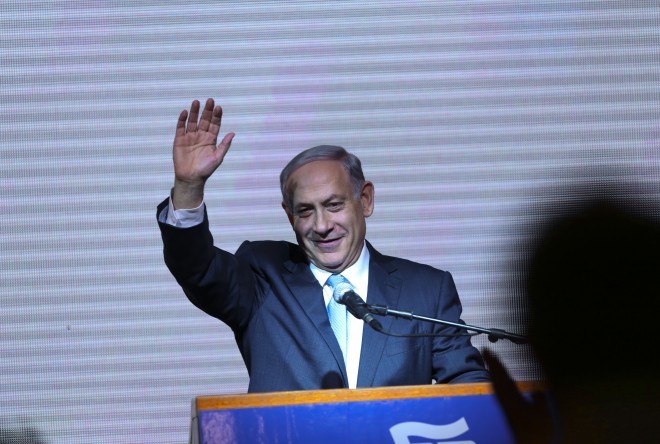
Israeli Prime Minister Benjamin Netanyahu greets supporters at the party’s election headquarters In Tel Aviv. Wednesday, March 18, 2015. AP
WASHINGTON, United States — The Obama administration signaled on Wednesday it could take a tougher stance toward Benjamin Netanyahu following his decisive Israeli election victory and campaign tack to the right, saying there will be consequences for his sudden reversal on the idea of an independent Palestinian state.
While senior American officials said the administration was still evaluating options, they suggested the U.S. could ease its staunch opposition to Palestinians turning to the UN Security Council to create a state.
“There are policy ramifications for what he said,” one official said of Netanyahu’s campaign rhetoric rejecting the creation of a Palestinian state. “This is a position of record.”
BACK STORY: Netanyahu promises no Palestinian state if he is re-elected
If Netanyahu holds firm to his opposition to a two-state resolution to the Mideast conflict, it could force whoever sits in the Oval Office — now and in the next administration — to choose between the prime minister and a longstanding U.S. policy with bipartisan support.
Hours after the Israeli election results were finalized, the White House quickly reaffirmed its support for the idea of two independent nations living side by side, a central tenet of peace negotiations led by presidents from both U.S. political parties. And the White House sharply chastised Netanyahu’s party for using anti-Arab rhetoric in the lead-up to the election.
“Rhetoric that seeks to marginalize one segment of their population is deeply concerning and it is divisive,” Obama spokesman Josh Earnest said.
Frustrated by both Israel and the U.S., Palestinian Authority President Mahmoud Abbas has become increasingly aggressive in efforts to secure a Palestinian state through other means, including the UN Security Council. The U.S. has veto power on the council and has repeatedly warned Abbas it would block his efforts to use that avenue.
Washington studying options
But on Wednesday, a senior administration official said only that the administration was evaluating its options on Security Council action and other possible responses, notably not repeating administration threats to block the Palestinians. A second official confirmed the U.S. could decide not to veto Security Council action.
The officials were not authorized to speak by name about internal deliberations and commented only on condition of anonymity.
Most Republican presidential hopefuls welcomed Netanyahu’s victory, but they were notably silent about whether they backed Palestinian statehood.
Former Republican President George W. Bush made a two-state solution a cornerstone of his efforts to secure peace between Israelis and Palestinians. Obama also has pursued Palestinian statehood, most aggressively in a months-long push for peace that ultimately collapsed last year.
Champion of Palestinian dream
Hillary Rodham Clinton, the Democratic front-runner if she enters the 2016 campaign, did not comment on the Israeli elections. As Obama’s first secretary of state, she worked closely with Netanyahu and championed an independent Palestinian state.
Aaron David Miller, a longtime Middle East adviser to secretaries of state from both parties, said it was unlikely a U.S. president of either party would abandon support for Palestinian statehood in the near future.
“I suspect it is the fate of both Democratic and Republican presidents to be caught in a situation in which a two-state solution is too difficult to implement on the one hand and yet too difficult to abandon on the other,” said Miller, now a scholar at the Wilson Center in Washington.
RELATED STORIES
Netanyahu’s Likud wins Israeli election
Netanyahu and Obama spar over Iran nuclear deal